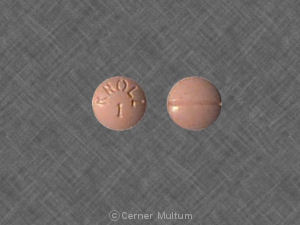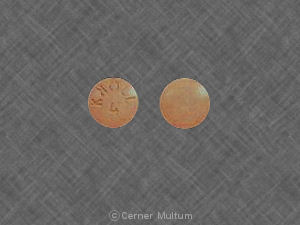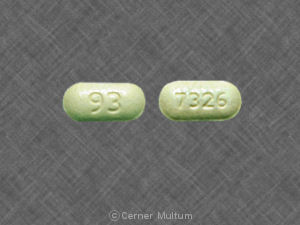What is the most important information I should know about trandolapril?
Do not use if you are pregnant. Stop using this medicine and tell your doctor right away if you become pregnant.
If you have diabetes, do not use trandolapril together with any medication that contains aliskiren (Amturnide, Tekturna, Tekamlo).
What is trandolapril?
Trandolapril is an ACE inhibitor. ACE stands for angiotensin converting enzyme.
Trandolapril is used to treat high blood pressure (hypertension), and to improve survival after a heart attack.
Trandolapril may also be used for purposes not listed in this medication guide.
What should I discuss with my healthcare provider before taking trandolapril?
You should not use trandolapril if you have ever had angioedema, or if you are allergic to trandolapril or to any other ACE inhibitor (benazepril, captopril, enalapril, fosinopril, lisinopril, moexipril, perindopril, quinapril, ramipril).
If you have diabetes, do not use trandolapril together with any medication that contains aliskiren (Amturnide, Tekturna, Tekamlo).
You may also need to avoid taking trandolapril with aliskiren if you have kidney disease.
To make sure trandolapril is safe for you, tell your doctor if you have:
- kidney disease (or if you are on dialysis);
- liver disease;
- any history of heart disease or congestive heart failure;
- diabetes; or
- a connective tissue disease such as Marfan syndrome, Sjogren's syndrome, lupus, scleroderma, or rheumatoid arthritis.
Do not use if you are pregnant. If you become pregnant, stop taking this medicine and tell your doctor right away. Trandolapril can cause injury or death to the unborn baby if you take the medicine during your second or third trimester.
Trandolapril can pass into breast milk and may harm a nursing baby. You should not breast-feed while you are using trandolapril.
How should I take trandolapril?
Follow all directions on your prescription label. Your doctor may occasionally change your dose to make sure you get the best results. Do not take this medicine in larger or smaller amounts or for longer than recommended.
Trandolapril can be taken with or without food.
You may have very low blood pressure while taking this medication. Call your doctor if you are sick with vomiting or diarrhea, or if you are sweating more than usual.
Your blood pressure will need to be checked often, and you may need frequent blood tests.
If you need surgery, tell the surgeon ahead of time that you are using trandolapril.
If you are being treated for high blood pressure, keep using this medication even if you feel well. High blood pressure often has no symptoms. You may need to use blood pressure medication for the rest of your life.
Store at room temperature away from moisture and heat.
What happens if I miss a dose?
Take the missed dose as soon as you remember. Skip the missed dose if it is almost time for your next scheduled dose. Do not take extra medicine to make up the missed dose.
What happens if I overdose?
Seek emergency medical attention or call the Poison Help line at 1-800-222-1222.
What should I avoid while taking trandolapril?
Avoid drinking alcohol. It can further lower your blood pressure and may increase some of the side effects of trandolapril.
Do not use salt substitutes or potassium supplements while taking trandolapril, unless your doctor has told you to.
What are the possible side effects of trandolapril?
Get emergency medical help if you have any of these signs of an allergic reaction: hives; difficult breathing; swelling of your face, lips, tongue, or throat. You may be more likely to have an allergic reaction if you are African-American.
Call your doctor at once if you have:
- a light-headed feeling, like you might pass out;
- sudden weakness or ill feeling, fever, chills, sore throat, painful mouth sores, pain when swallowing, skin sores, cold or flu symptoms;
- upper stomach pain, and jaundice (yellowing of the skin or eyes);
- chest pain, pounding heartbeats or fluttering in your chest;
-
lung problems --anxiety, sweating, pale skin, severe shortness of breath, wheezing, gasping for breath, cough with foamy mucus;
-
kidney problems --little or no urination, painful or difficult urination, swelling in your feet or ankles, feeling tired or short of breath;
-
high potassium --nausea, slow or unusual heart rate, weakness, loss of movement; or
-
low calcium --numbness or tingly feeling around your mouth, fast or slow heart rate, muscle tightness or contraction, overactive reflexes.
Common side effects may include:
- cough;
- cold symptoms such as stuffy nose, sneezing, sore throat;
- muscle pain;
- dizziness, weakness, fainting;
- high potassium or low calcium;
- slow heart rate; or
- upset stomach.
This is not a complete list of side effects and others may occur. Call your doctor for medical advice about side effects. You may report side effects to FDA at 1-800-FDA-1088.
What other drugs will affect trandolapril?
Tell your doctor about all your current medicines and any you start or stop using, especially:
- a diuretic or "water pill";
- gold injections to treat arthritis;
- insulin or oral diabetes medicine;
- lithium;
-
medicine to prevent organ transplant rejection --cyclosporine, everolimus, sirolimus, tacrolimus, temsirolimus; or
-
NSAIDs (nonsteroidal anti-inflammatory drugs) --aspirin, ibuprofen (Advil, Motrin), naproxen (Aleve), celecoxib, diclofenac, indomethacin, meloxicam, and others.
This list is not complete. Other drugs may interact with trandolapril, including prescription and over-the-counter medicines, vitamins, and herbal products. Not all possible interactions are listed in this medication guide.
Where can I get more information?
Your pharmacist can provide more information about trandolapril.
Remember, keep this and all other medicines out of the reach of children, never share your medicines with others, and use this medication only for the indication prescribed.
Every effort has been made to ensure that the information provided by Cerner Multum, Inc. ('Multum') is accurate, up-to-date, and complete, but no guarantee is made to that effect. Drug information contained herein may be time sensitive. Multum information has been compiled for use by healthcare practitioners and consumers in the United States and therefore Multum does not warrant that uses outside of the United States are appropriate, unless specifically indicated otherwise. Multum's drug information does not endorse drugs, diagnose patients or recommend therapy. Multum's drug information is an informational resource designed to assist licensed healthcare practitioners in caring for their patients and/or to serve consumers viewing this service as a supplement to, and not a substitute for, the expertise, skill, knowledge and judgment of healthcare practitioners. The absence of a warning for a given drug or drug combination in no way should be construed to indicate that the drug or drug combination is safe, effective or appropriate for any given patient. Multum does not assume any responsibility for any aspect of healthcare administered with the aid of information Multum provides. The information contained herein is not intended to cover all possible uses, directions, precautions, warnings, drug interactions, allergic reactions, or adverse effects. If you have questions about the drugs you are taking, check with your doctor, nurse or pharmacist.
Copyright 1996-2018 Cerner Multum, Inc. Version: 13.01. Revision date: 3/7/2016.





